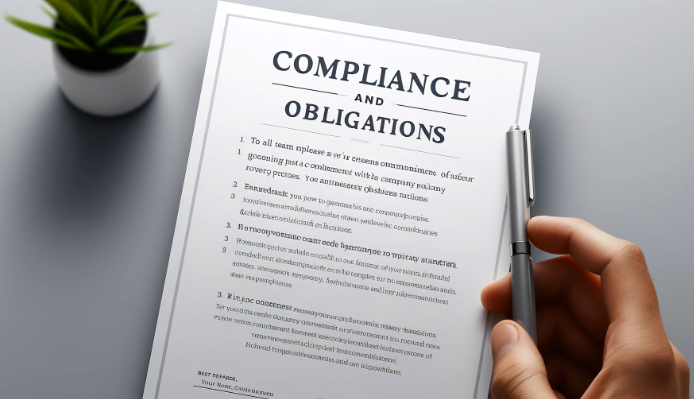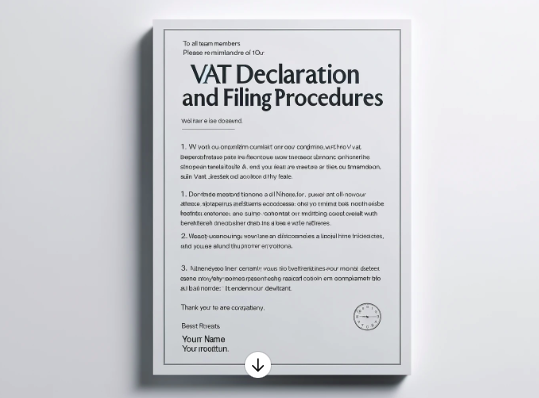
In the vibrant Mediterranean setting, Malta presents a comprehensive value-added tax (VAT) system that adheres to European Union standards while incorporating unique national provisions. This system, alongside the Malta VAT rate, is pivotal for a wide range of businesses, including those involved in the ever-growing yacht sector.
Malta’s strategic location has made it a popular hub for maritime activities, and the VAT framework plays a key role in managing VAT on goods and services efficiently, providing substantial advantages for those in this sector. For yacht owners and maritime businesses, understanding VAT in Malta becomes especially critical when making decisions about purchasing, importing, or utilizing vessels within the EU.
One of the most attractive options for yacht owners is the ability to register a yacht in Malta, which comes with favorable tax benefits and streamlined registration processes. This not only enhances the ownership experience but also provides opportunities for reduced VAT exposure, particularly for those operating commercial yachts.
The Maltese VAT system is structured to support economic activity both within its local markets and across intra-community supplies, making it essential for businesses of all types to stay informed about the VAT rates and applicable regulations.
By taking advantage of the country’s tax system and maritime infrastructure, businesses can optimize their operations while complying with EU-wide standards. Whether you’re involved in the local market or expanding internationally, Malta’s tax and VAT framework offers a robust, business-friendly environment.
VAT Rates in Malta
Malta aligns with the EU’s VAT directive but tailors its rates to support both local economic policies and compliance needs. Here’s a breakdown of the current VAT rates:
- Standard VAT Rate (18%): This rate applies universally to all taxable goods and services unless a specific exemption or reduced rate is applicable, reflecting Malta’s adherence to maintaining robust VAT standards.
- Reduced VAT Rate (7%): Targeted reductions for hotel accommodations and sporting facilities to support the tourism and health sectors.
- Further Reduced VAT Rate (5%): Encompasses essential items such as certain medical accessories, books, and electricity—key components in fostering accessibility to necessary goods.
- Zero VAT Rate (0%): Assigned to specialized goods and services like intra-community transport, certain prescribed medications, and live animals destined for human consumption, highlighting Malta’s strategic economic exemptions.
VAT Registration Process in Malta

Who Needs to Register: VAT registration in Malta is mandatory for businesses whose economic activities exceed the minimum threshold specified by Maltese VAT regulations. This includes local companies and foreign entities engaging in taxable transactions within Malta.
Required Documentation: To register for VAT, entities must obtain a VAT number from the Commissioner for Revenue, which serves as their unique identifier for all VAT-related matters.
Registration Categories:
- Article 10 Registration: For businesses with regular and ongoing taxable supplies in Malta, necessitating full VAT compliance and entitling them to deduct input VAT.
- Article 11 Registration: Suitable for smaller enterprises or those with limited taxable activities, offering a simplified VAT structure without the right to deduct input VAT.
VAT Compliance and Obligations

Navigating VAT compliance in Malta involves understanding and fulfilling various regulatory requirements:
- VAT Returns: Businesses must file periodic VAT returns, detailing all taxable transactions and VAT amounts collected and owed.
- VAT Refunds: Entities with excess input VAT may claim VAT refunds, subject to specific conditions and scrutiny by Maltese tax authorities.
- Record Keeping: Maintaining detailed records of all VAT-relevant transactions is mandatory, ensuring transparency and readiness for potential audits.
- Tax Representative: Non-resident businesses often appoint a tax representative to handle their VAT affairs in Malta, ensuring compliance with local VAT obligations and facilitating smoother operations within the EU framework.
Special Provisions and Exemptions
Malta’s VAT system includes several provisions to cater to various sectors and activities:
- Health and Welfare Services: Exempt from VAT, recognizing their importance to public well-being.
- Immovable Property Transactions: Generally exempt, with specific conditions for VAT liability depending on the nature of the transaction and property use.
- Cultural Activities: Reduced or zero-rated VAT on activities like art exhibitions and cultural events to promote Maltese heritage and arts.
Maintaining VAT Compliance in Malta
VAT Invoicing
Under Maltese VAT legislation, all invoices must adhere to specific requirements. They need to be issued by the 15th day of the month following the transaction to ensure compliance with the VAT Act. This regulation is crucial for all taxable persons to manage their VAT obligations effectively.
Record Keeping
To comply with Maltese VAT regulations, it is mandatory to maintain VAT records for at least ten years. This long-term record-keeping is essential for VAT compliance, ensuring that all services supplied and goods or services transactions are accurately documented for potential audits by the Maltese tax authorities.
Credit Notes and Corrections
Processing credit notes and adjustments must follow local guidelines detailed in the Maltese VAT Act. This process is vital for correcting invoicing errors or modifying transaction details post-issuance, ensuring that VAT records remain accurate and reflective of actual business activities.
VAT Declaration and Filing Procedures

– VAT Returns
Businesses must submit VAT returns based on the frequency dictated by their VAT registration details. These returns are usually required quarterly or annually, depending on the company’s activities and the VAT number associated with their VAT registration. Accurate completion of VAT returns is essential for reporting all economic activity to the authorities.
– VAT Payments
VAT payments must be made within the month following the end of the filing period. This payment is crucial to avoid late payment interest and penalties. Businesses need to ensure they calculate their dues based on the standard VAT rate or reduced VAT rate applicable to their goods and services, considering any VAT refund, input VAT, or VAT incurred that could affect the total amount owed.
– VAT Implications for Yacht Registration
Registering a yacht in Malta can have significant VAT implications. The process might involve VAT registration if the yacht is part of a business asset or if it involves chartering. Understanding the Maltese VAT on luxury assets such as yachts is crucial, especially considering the standard rate of VAT that could apply, depending on the use and leasing structure.
Navigating VAT in Malta requires a thorough understanding of the Maltese VAT legislation, including all aspects related to VAT rates, VAT registration, and VAT compliance. Proper adherence to these guidelines ensures businesses can operate smoothly without incurring penalties. For non-taxable persons, understanding these principles can also be beneficial, particularly if engaging in activities that might inadvertently trigger VAT obligations under the Maltese VAT Act.
Yacht Registration
Registering a yacht in Malta can be advantageous, providing international recognition and access to VAT Exempt Malta provisions. To Register Yacht Malta, one must comply with the maritime registration rules overseen by the Malta Maritime Authority.
Benefits:
- VAT Exemption Malta: Owners can benefit from specific exemptions based on the type of service or good consumed on the vessel.
- International Standards: Malta’s maritime registry ensures compliance with EU standards while offering a reliable VAT exemption framework.
VAT Exemption in Malta
Certain goods and services fall under the VAT Exempt Malta classification, such as:
- Exports and international transportation services.
- Services related to cultural, educational, and religious activities.
- Intra-community Supplies: Moving goods between EU member states is exempt under specific conditions.
Specific VAT Compliance Practices
Tax Point
The tax point is the date when VAT is chargeable. This can occur at:
- The date of the chargeable event.
- The date of payment for the goods or services.
- The invoice issuance date if it’s within 30 days of the event.
Intra-Community Supplies and Acquisitions
- Supplies: VAT is due on the 15th day of the month following the chargeable event or when the invoice is issued.
- Acquisitions: Tax becomes due based on the event’s date or as defined in the acquiring country’s VAT regulations.
Get Help with VAT Challenges
Navigating VAT registration in Malta can be complex, especially when trying to Register Yacht Malta or ensure compliance under the VAT Act Malta. Seek assistance from VAT specialists to handle your compliance needs effectively, minimizing your administrative workload while maximizing tax benefits.
